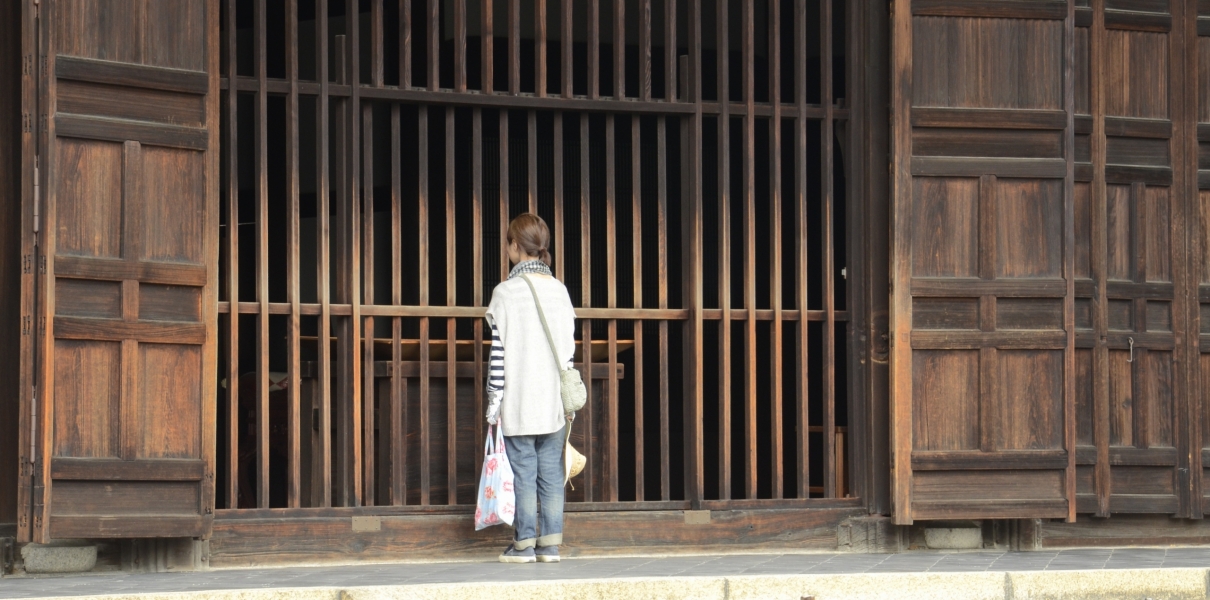One theme that I have noticed with many of my counseling and coaching clients is the feeling they have of being on the outside looking in. This might be how they feel in a particular social situation such as with their family, at work or with a particular group of friends. For some, it is what they repeatedly experience. For many, this began during school days and has been with them throughout their lives.
The isolation and devastation of feeling like you are the only one who doesn’t belong or fit in can overshadow all else in one’s life. It can become a repetitive self-fulfilling process — a pervasive experience of wanting to be on the inside, but standing alone watching others have fun whom we might believe have selectively and intentionally left us out.
I remember feeling trapped in this position in high school. The “in crowd” seemed to really be having a fabulous time. I watched from the periphery wondering what was wrong with me that I didn’t authentically want to be doing what they were doing and why didn’t it matter to them whether I was part of the group or not. I wanted the fun they were having, but I knew that I would have to fake it to be a part of the group and I wasn’t good at that. I wanted them to want me. I knew that forcing or inserting myself into their activities wouldn’t accomplish that. Feelings of not fitting in, not being chosen and just not belonging anywhere dominated my experiences in high school.
As life marched on, I noticed myself experiencing the outsider phenomenon repeatedly. It was my norm in social situations until I started to take a good look at it. I noticed a few important things that became my opportunity to break free and eventually to help others to do so as well. Here are some keys to moving away from the experience of being the outsider looking in:
- Observe Your Experience, Don’t Make It Wrong
If you fall into the trap of automatically thinking “they are right and therefore I am wrong” you have made a dead end proclamation and have lost the opportunity to consider other possibilities. That’s why observation rather than judgment is so important. Observation leads to neutral conclusions that allow you to explore your options. Neutral observations might look like “I am looking at them having fun. I want to have fun. I don’t feel comfortable in this situation. Where else do I feel comfortable?”
- Look Inward, Not Outward.
When you find yourself distressed watching others seemingly having a good time, notice that you are doing that. Then choose to look inward at your experience rather than outward at what others are doing. When we look at our negative feelings as feedback rather than as cause for judgment of ourselves or others, we can work with the information in a healthier way. For example, “I want to have fun. Standing here watching them is not fun for me. What else might I do to have the experience I am looking for? What is fun for me? What would be more fun for me than standing here watching them have fun?” It stands to reason that if you put your hand over a burning flame, it hurts and the healthy response is to move your hand away and learn not to do that again. So, apply that logic here.
- Consider the Possibility That You Are Creating a Self-Fulfilling Prophecy
When you never go beyond making yourself wrong each time you encounter the feeling of being disconnected from others around you, you simply pile on more bad feelings on top of old unresolved feelings. The pain gets bigger and bigger because each encounter touches into the mother load of unresolved feelings you carry around from similar experiences in the past and you feel more “wrong” and “disconnected” with each new encounter. Convinced that you are “right” in your interpretation of being “wrong” (having never considered an alternative) makes your perspective a self-fulfilling prophecy.
- Pay Attention to What Works for You and What Doesn’t
Work with your own feedback to create more of what works for you and less of what doesn’t. That’s called mastering the art of living. It will bring you much more fulfillment, joy and satisfaction than repeating the same old negative response sadly and wistfully wishing for a different outcome. Lovingly attend to your own sense of imbalance.
- Look Elsewhere.
Explore what other options are available to you. Stop wanting to be part of something that doesn’t make you happy. If the shoe doesn’t fit, try on a different shoe. Go for what fits, not for what you wish would fit, but doesn’t. Go for the feeling and experience you are looking for, don’t demand the conditions under which those feelings will manifest. Be committed to finding your own form of happiness where you fit in and feel good about yourself and don’t settle for anything less.
Here’s to being inside our own experience and to honoring our own truth, trusting that we belong in this world just the way we are.
Also, if you know anyone who might get value from this article please email or retweet it or share it on Facebook.






